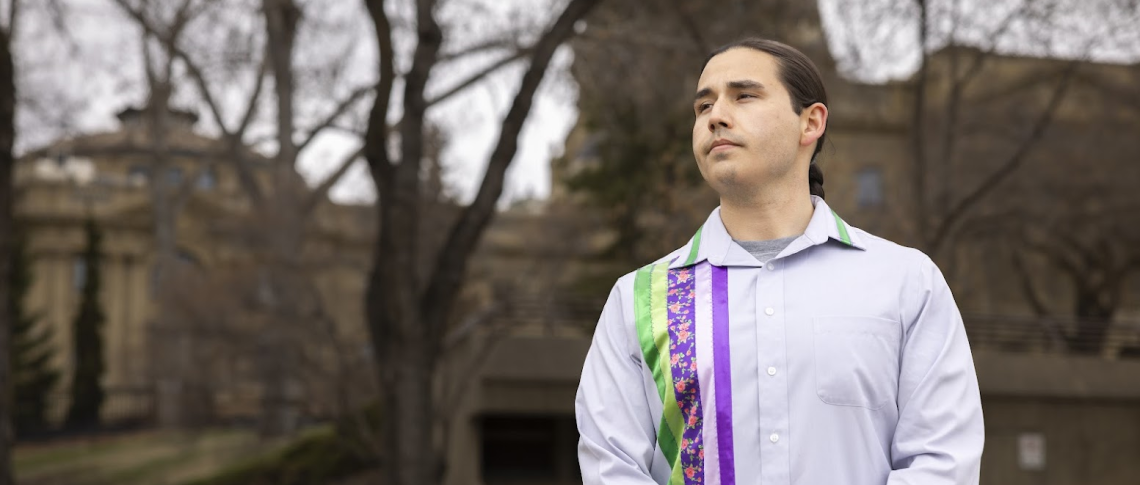

What is your background?
My name is Bernard Fickel, but I go by Joey. I am a proud member of the Saulteau First Nations near Moberly Lake, BC, and I grew up in Edson, AB. Professionally, I hold a degree in a Bachelor of Social Work and have several years of work experience in social services. I have a deep commitment to my Indigenous identity and am driven by a desire to make positive impacts and to ensure that our Awasisak families receive the support and resources they need. I believe this is at the heart of the Awasiak team’s work.
Can you please describe your role at AHS?
I am one of two Child and Family Engagement Coordinators with the Stollery Awasisak Indigenous health program. My role has been described as a host and liaison for Indigenous parents and children when they are at the Stollery. I may provide onsite and offsite navigation for families to attend appointments correlated to the care of their child. Additionally, this role is tasked with planning Awasisak events and gatherings, including ceremonies at the hospital.
Why is your role important to you? What is your favourite part of it?
This role is important to me because I have the privilege of being a host to our families, helping them with site navigation, attending appointments, and working with our team and the Stollery to create an environment that honours their Indigenous identities through the various events we put on as a team, such as drumming ceremonies, and our Bannock and tea lunches we host at both the University of Alberta and the Royal Alexandra Hospital sites.
My favourite part is getting to make a tangible difference in the lives of the Indigenous families we serve, ensuring they feel supported, heard, and empowered throughout their healthcare journey.
Actually a few years ago, I stepped back and I took a role in more of a western clinical approach to mental health and well-being, and it didn't really have a lot of opportunity for the Indigenous perspective and approaches and I missed that. I knew then that I was like that has to be part of whatever I'm doing in my job and so it led me back here, and here we are.
Why is it important to have Indigenous representation in this role?
It is crucial to have Indigenous representation in roles like mine because we can bring a unique perspective and understanding of the challenges faced by Indigenous communities. I feel it helps us better relate to the cultural and historical context shaping our families' experiences, and I'm better equipped with our team's support to provide culturally sensitive guidance. Having this Indigenous representative on our team also helps build trust and rapport with the families we serve, fostering a sense of community and belonging.
What does National Indigenous Peoples Month mean to you? Is there a message you’d like to share?
It is a time to recognize and celebrate the rich diversity and outstanding contributions of Indigenous peoples. I like that we have the opportunity to reflect on who we are as Indigenous peoples while being able to share with others who we are. It allows us to educate and advocate for greater understanding to build towards a more inclusive and equitable society that values our identities and ways of knowing.
We have endured immense challenges, but I believe our spirits remain unbroken. Let's continue to support and uplift one another to share knowledge and traditions and to work towards a future where all Indigenous people thrive. To those who are non-Indigenous, I encourage you to listen, learn, and stand with us as we navigate this journey together. By fostering respect and understanding, we can build a more equitable society for all. It is at times like this that I think of a proverb I once saw written on the wall of a healing lodge I was a placement student at:
"Sakihitok mina wicihitok"
"Love one another and help one another"